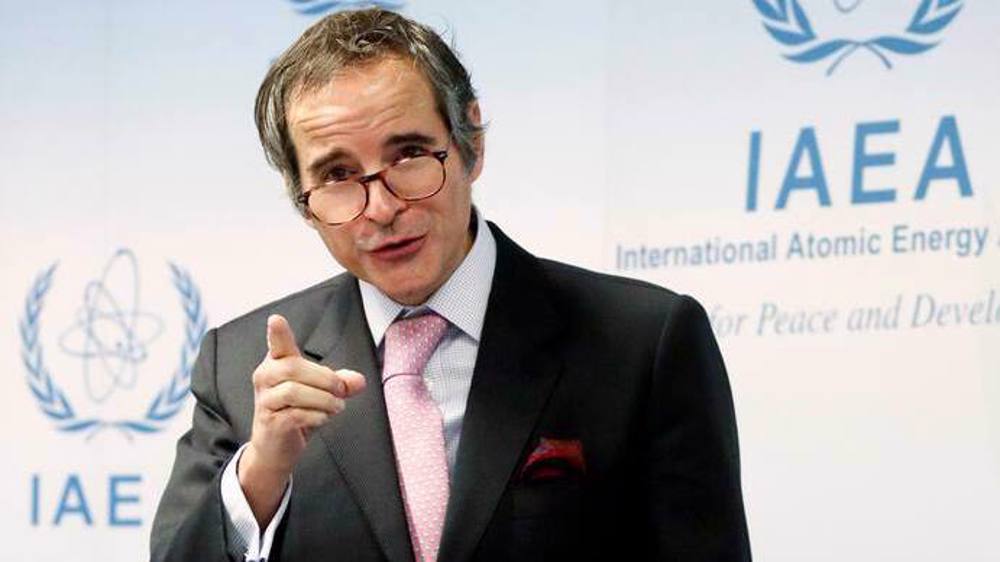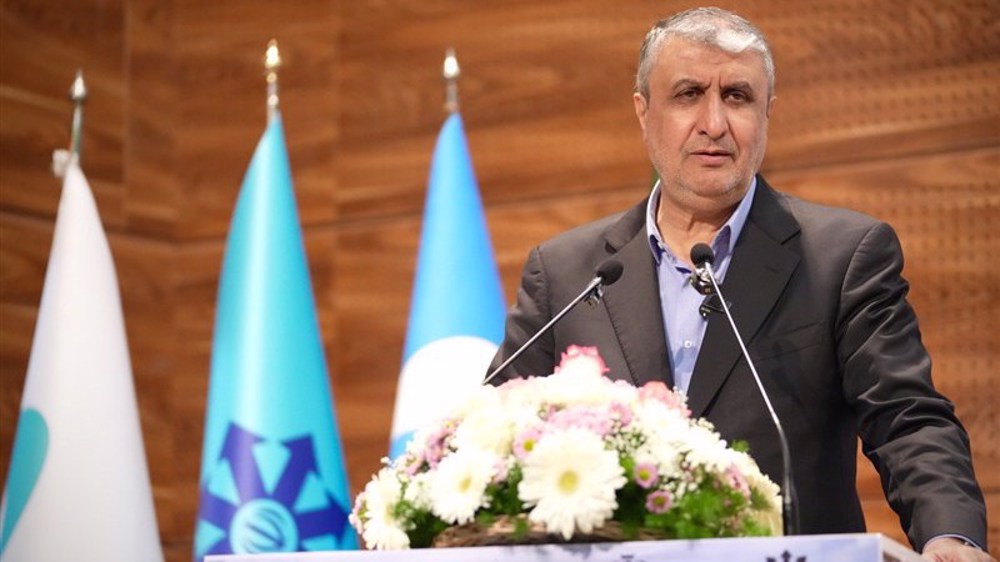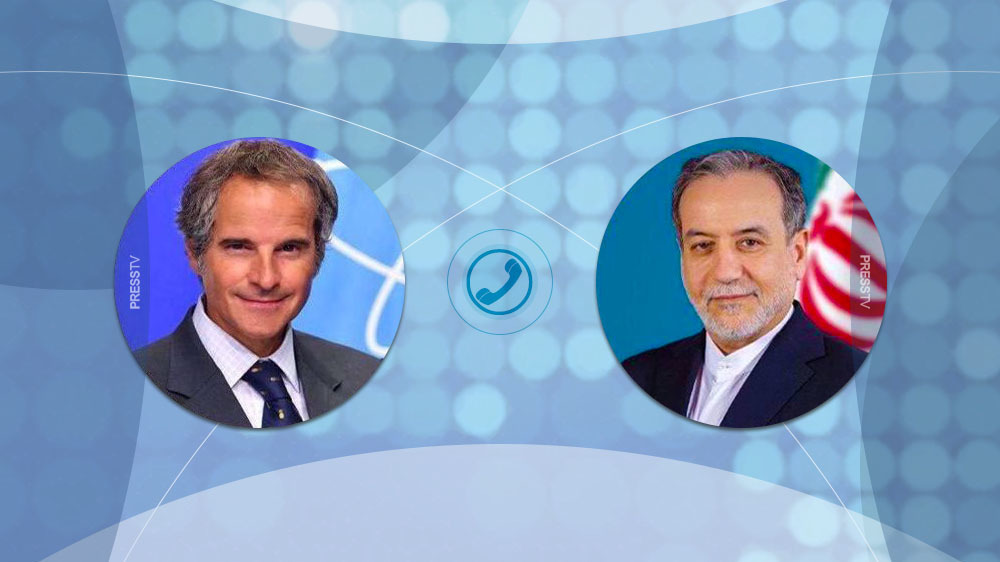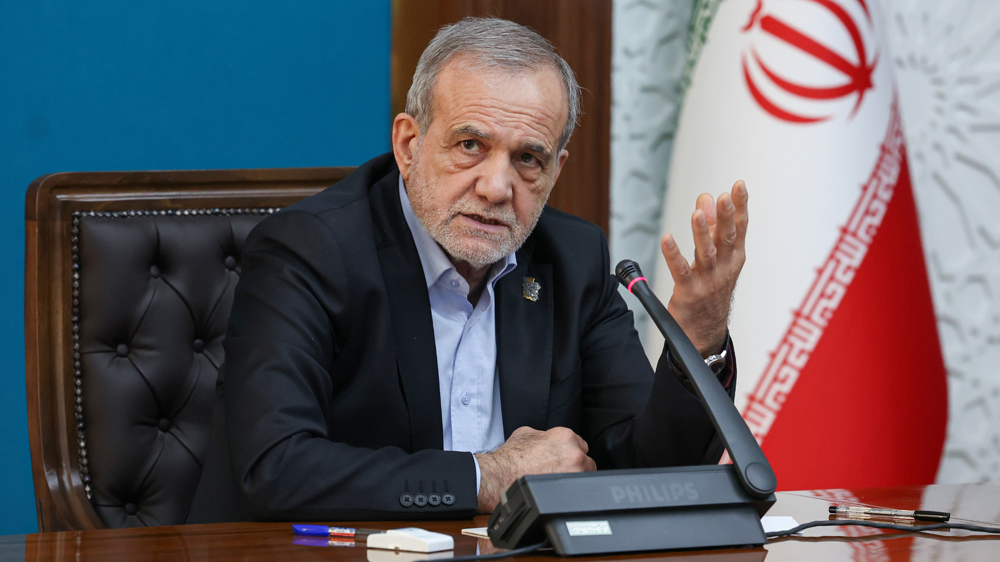IAEA: Iran’s deal partners should seize 3-month chance to revive JCPOA
The UN nuclear agency says a US return to the 2015 nuclear agreement is “difficult” but still “possible,” calling on Iran’s partners in the deal to seize the three-month chance offered by Tehran as part of a bilateral understanding with the watchdog to revive the nuclear deal.
Speaking in a video appearance before three European Parliament committees on Tuesday, Director General of the International Atomic Energy Agency (IAEA) Rafael Grossi said he had been talking to both sides in his agency’s “impartial neutral role” over the future of the deal, known as the Joint Comprehensive Plan of Action (JCPOA).
He said he did think that a US return to the deal was possible but the two sides need to be prepared to negotiate.
“They (the US) want to come back. But of course ... there are a number of issues that still need to be clarified. So it’s not impossible. It is difficult, but not impossible,” Grossi said, the Associated Press reported.
Trump abandoned the 2015 nuclear deal, which was signed between Iran and major world states, in 2018 and re-imposed the anti-Iran sanctions lifted by the JCPOA.
As the European co-signatories failed to fulfill their commitments to Tehran as well, the Islamic Republic took a set of remedial actions based on Article 36 of the JCPOA, including reduction of its nuclear obligations.
The new US administration, under President Joe Biden, has signaled a desire to rejoin the JCPOA, but conditioned the move on Tehran’s resumption of the commitments it has suspended.
On February 23, Iran stopped the voluntary implementation of the Additional Protocol to the Non-Proliferation Treaty (NPT) Safeguards Agreement that allowed the IAEA to carry out short-notice inspections of the country’s nuclear facilities.
The measure was taken as part of a law, passed by the Iranian Parliament last December, requiring the government to suspend more of its commitments under the nuclear deal, should the US fail to lift its sanctions by February 21.
However, in a goodwill gesture in support of diplomacy, Tehran reached a deal with the IAEA, under which it would continue to use cameras to record information at its nuclear sites for three months, but it would retain the information exclusively.
If the US sanctions are lifted completely within that period, Iran will provide the footage information to the IAEA, otherwise it will be deleted forever.
“Admittedly it is limited, but it allows to maintain a record of the basic activities that are taking place,” Grossi said in reference to the temporary agreement reached in Tehran. “Granted it is not the same as the whole access that we used to have.”
The IAEA chief, however, emphasized that it was important for the JCPOA powers to use this three-month “diplomatic window of opportunity” that Iran has granted.
“In this time period, the parties involved will hopefully be able to achieve, or at least start to move back to the JCPOA,” he said.
Alawite women abducted and raped, others sold by Jolani's men: Report
Iran, China, Russia hold trilateral talks on Geneva nuclear negotiations
VIDEO | Protests and skepticism greet Trump’s 'Board of Peace'
Envoy to UN: Iran will ‘decisively’ defend itself against aggression
VIDEO | Press TV's news headlines
VIDEO | Muslims across India begin holy month of Ramadan
Hamas condemns Trump's 'Board of Peace' meeting
Iran and Saudi FMs discuss outcomes of latest indirect Iran-US talks











 This makes it easy to access the Press TV website
This makes it easy to access the Press TV website